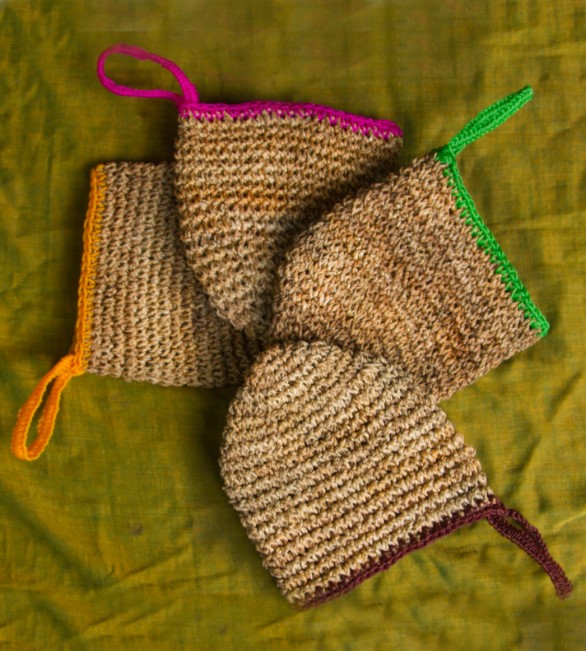Anegundi is known for its historical and cultural importance. But few know about yet another dimension of this quaint village in Gangavathi taluk, Koppal district of Karnataka. Innovation in Banana crafts has given Anegundi a new face. Anegundi banana fibre products from banana waste have received much acclaim nationwide.

About Anegundi
Anegundi is a UNESCO world heritage site 20 KM from the historic town of Hampi. It was the capital of the Vijayanagara Empire before Hampi. It has a lot of historical and mythological importance associated with it. People also believe that Anegundi is the birthplace of Lord Hanuman. The ruins of ancient temples still dot the place. Also, the people of Anegundi have joined with non-profit organisations to revive its culture and rich historical importance to make it worthy of a visit. Furthermore, the village is now widely acclaimed for the Anegundi banana fibre products, an initiative of The Kishkinda Trust. Read in detail about Anegundi here.
The Story of the Anegundi Banana Fibre Products
Shama Pawar founded The Kishkinda Trust, Anegundi, Hampi, in 1997. Its banana fibre craft initiative aims to empower women and recycle natural resources. Since bananas are abundant in Anegundi, Shama Pawar decided to use them as the raw material for her craft forms. Thus, making banana fibre products in Anegundi came into being by involving local women in their making in 1998. Furthermore, the trust foresees enriching the women at the basic level to run the banana fibre production units themselves. The women are trained for about six months to gain the skill to make banana fibre products.
Banana fibres are eco-friendly and biodegradable. They are odour-free, water-resistant, fire-resistant, heat-resistant and grease-proof.
The Kishkinda Trust has also founded the Hari Dharti Rural Development Society, which aims to empower women and make them independent entrepreneurs. At present, there are three banana fibre production units: a rope-making unit, a domestic market craft unit, and an export unit with a market linkage partner from Finland. The trust thus aims to make the artisans the owners and managers of the units.
Banana fibre handicraft products are sold in the Hoova Cafe and the craft shop of The Kishkinda Trust. The returns on these sales are pumped back into the trust. While the artisans work at the workshop, some also work from home. They earn about Rs.200 per day.
How Anegundi banana fibre products are made
The banana leaves are soaked to detach the two layers to gain the raw material. The workers pull apart the layers once the leaf becomes soft, owing to soaking. While one layer is a waste, the other is cut into strips and twisted to make strings. The artisans hand-weave the strings to create products like baskets, bags, hats, mats, photo frames, boxes, pouches, etc. Though only started recently, the Anegundi banana fibre products have empowered women artisans and local farmers. The banana stem, the raw material usually discarded, is sourced from the local farmers; hence, they also gain monetarily.
To conclude, when you make a trip to visit the temples in Hampi, make sure to visit Anegundi and take a look at the banana fibre products.
Also read
- Top 5 Things To Do in Hampi
- Pan Supari Bazaar, Hampi – Tracing a Long Lost Market Place
- Pampa Sarovar Near Anegundi – A Picturesque Lake
- How Hampi and Anegundi Found their Place in Ramayana Circuit